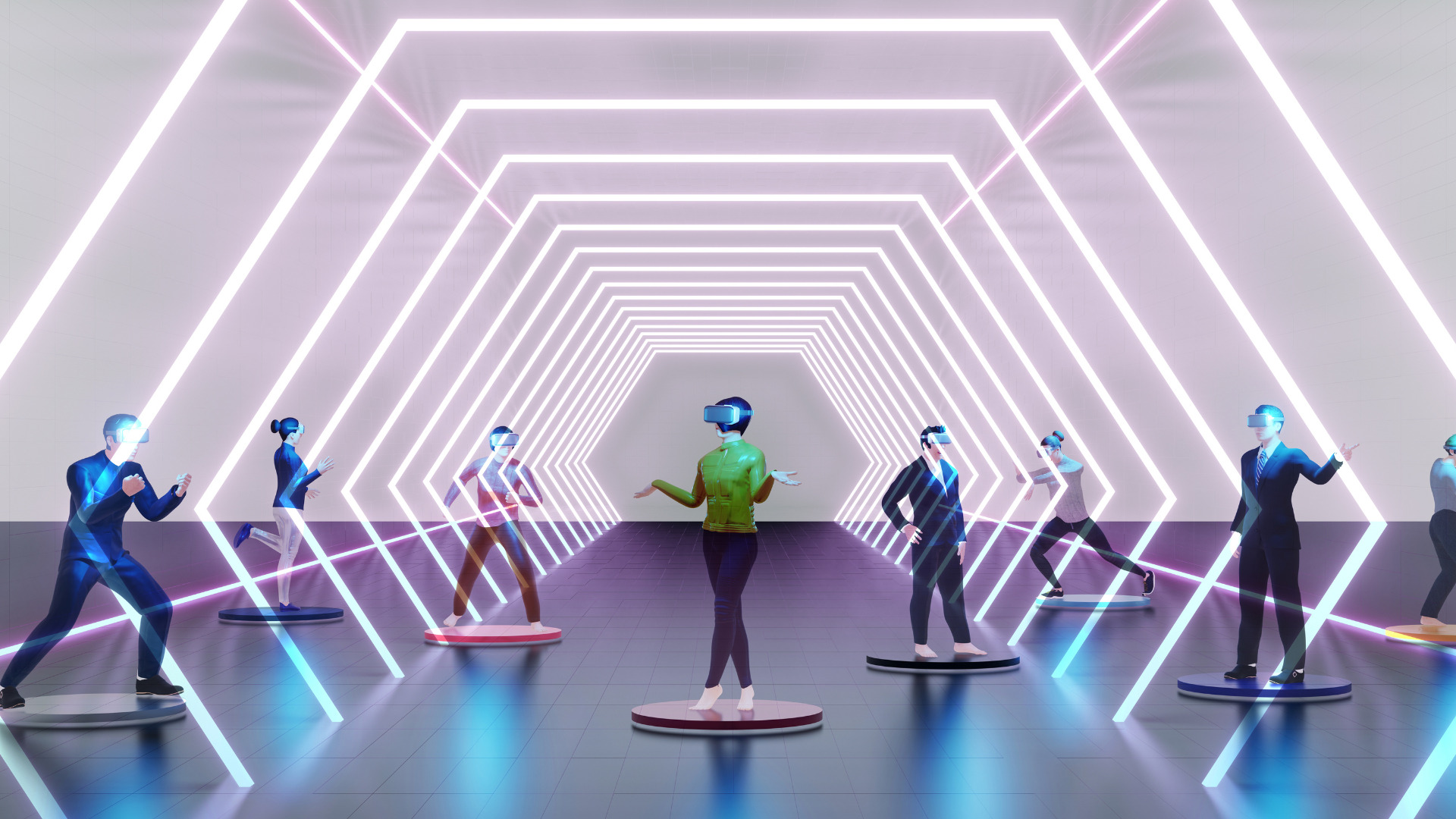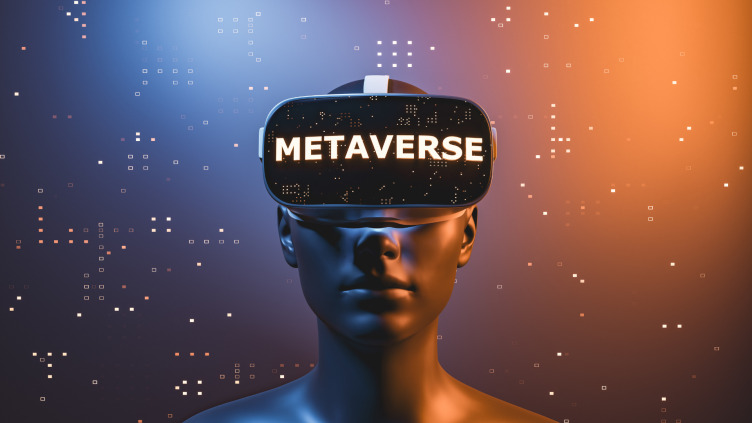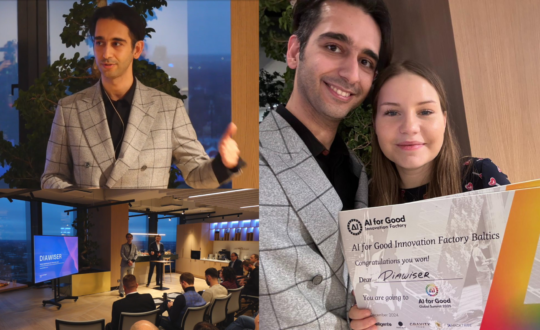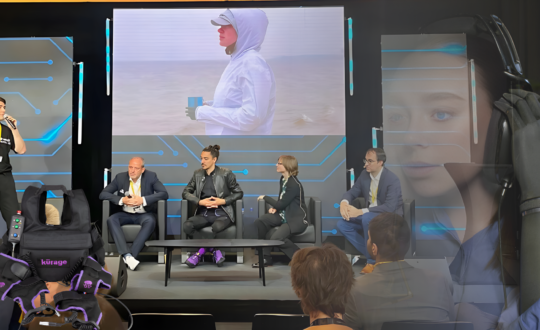The metaverse is a rapidly expanding digital landscape that is transforming the way we interact, work, and socialize. Central to this revolution is artificial intelligence (AI), playing a crucial role in shaping the future of the metaverse.
AI is anticipated to be a key enabler of the metaverse. In a recent AI for Good Keynote, Robin Raskin, Founder of the The Virtual Events Group (VEG), delves into how the technology can potentially augment user experiences in areas such as accurate avatar creation, digital humans, multilingual accessibility, VR world expansion at scale, and intuitive interfacing.
“The market size for building this new metaverse is huge,” said Robin Raskin, emphasizing the enormous potential of AI in this emerging domain. This potential spans various sectors, including entertainment, fashion, government services, and more.
Raskin highlighted the importance of blockchain technology in the metaverse, asserting that “all the metaverses will be based on blockchain” and will be decentralized. The convergence of technologies like cloud computing, AI, machine learning, and virtual reality (VR) is facilitating the creation of interconnected and interoperable digital worlds.
One of the primary applications of AI in the metaverse is the development of digital twins, virtual representations of physical objects, systems, or processes. Digital twins can serve various purposes, such as city planning, assembly line testing, or conducting virtual surgeries

The metaverse also offers governments the opportunity to create participatory and accessible services. For instance, Seoul and Singapore have developed metaverse platforms where citizens can attend events, engage in town hall meetings, and access various government services.
Nevertheless, the metaverse’s rapid growth raises concerns, including issues related to privacy, security, and regulation. Raskin underscored the need to address challenges posed by synthetic humans and cyberattacks, as well as the risks of harassment and bullying in the metaverse.
“We haven’t even caught up on web 2.0’s regulation, and how we feel web 3.0 or the metaverse will have a whole new set of concerns and regulations,” she cautioned.
In recent years, the concept of the metaverse has gained popularity as an immersive, interactive, and interconnected digital space where individuals can interact with each other and virtual environments. The emergence of AI has opened up new possibilities for the metaverse, enabling it to become more intelligent, responsive, and personalized. In a recent webinar, experts in AI, virtual reality (VR), and metaverse discussed the potential of the AI-powered metaverse and its impact on human interaction, creativity, and well-being.
According to Neil Trevett, Vice President of Developer Ecosystems & Chair of Metaverse Standards Forum from NVIDIA, the AI-powered metaverse can revolutionize the way we perceive and engage with the world, especially in terms of sustainability and climate change. By combining digital twins and AI-driven simulations, the metaverse can enable scientists and policymakers to monitor and model the Earth’s climate and predict its future outcomes.
“Throw enough computing power at that, and you can begin to run the simulation at some level of detail anyway faster than the real world” he said
Mischa Dohler, Chief Architect from Ericsson, highlighted the democratizing potential of the AI-powered metaverse, especially in terms of social interaction and participation. By providing a fully immersive and immediate construct, the metaverse can enable individuals from all over the world to participate in cutting-edge design exercises or other activities that were previously limited to specific locations or social groups.
“Therefore, the metaverse is actually now becoming a haptic construct as well. If you get it right, it will democratize that whole social type of engagement and open up the doors for somebody who lives in a very rural area or somewhere in South America to really participate in cutting-edge design exercises here in Silicon Valley,” he said.

Andrew Plato, CEO from Zenaciti, emphasized the role of fun and entertainment in the AI-powered metaverse, which can bring happiness and well-being to individuals. He also noted the importance of designing the metaverse in a way that acknowledges the basic principles of psychology and human connection.
“You can’t have happiness in these worlds if people don’t feel safe, they don’t feel like they belong, they don’t feel like they can engage. […] Let’s get back to the whole reason the internet exists and the metaverse exists, the whole benefit they give us, which is the ability to connect human beings. We absolutely need to connect with each other, and the metaverse gives us that in ways that the internet never could,” he said.
The AI-powered metaverse has the potential to revolutionize human interaction, creativity, and well-being by combining AI, VR, and other technologies. Its democratizing potential, sustainability applications, and entertainment value can make it a force for good in the world. However, designing the metaverse in a way that acknowledges the basic principles of psychology and human connection is essential to ensuring its success and impact. The AI-powered metaverse can be a tool for shaping the future of human interaction, and it’s up to us to shape it in a way that benefits all of us.




















